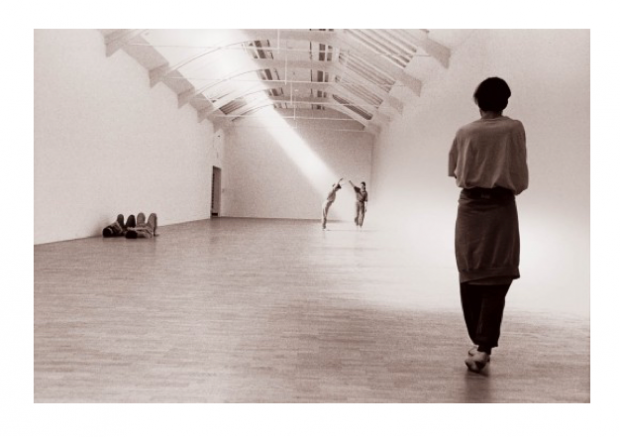My ancient Liddell and Scott Greek dictionary of 1849 defines choreia as ‘a dancing, especially with joy’. The word choros has a more technical definition: a round dance, or a dance accompanied with song (hence the word chorus). From whichever word ‘choreographer’ is declared to derive, the British dancemaker Rosemary Butcher, who died last month at 69 after a career barely visible to the public, embodied the first idea in a way that I see with hindsight changed my eyes emphatically in realising the marvellous range of ways to enjoy dance-going.
Choreia: ‘a dancing’ – an act of dancing, a piece of activity, rather than the choros, a dance creation. Choreia: not a joined-up circle of answers in a finished work of art, but something that hasn’t an end product in mind, jazz-like, improvisation, provoking questions uncomplicated by anything else than the pleasure of asking them. There’s no box office tinkle to categorise its worth.

Get Britain's best politics newsletters
Register to get The Spectator's insight and opinion straight to your inbox. You can then read two free articles each week.
Already a subscriber? Log in






Comments
Join the debate for just £1 a month
Be part of the conversation with other Spectator readers by getting your first three months for £3.
UNLOCK ACCESS Just £1 a monthAlready a subscriber? Log in